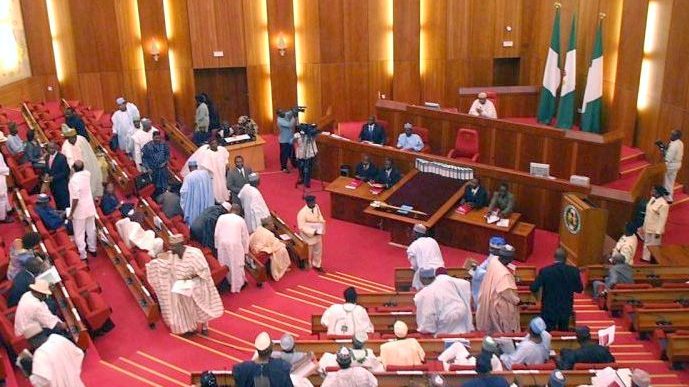Presenting the motion, Mrs. Sumonu, noted that despite Nigeria’s strategic position in Africa, the country’s health sector is greatly under-sized due to inadequate health facilities and incessant strikes by health workers.
She observed that despite a N308, 464, 276.782 allocation to the sector in the 2017 budget, government-owned hospitals are unable to provide basic medicine while medical equipment malfunction due to lack of electricity.
She said that “renovation or even constructions (of government-owned hospitals) are baseless if hospitals are not well-equipped with basic facilities to save lives.”
Speaking on the motion, Ali Wakili, Bauchi-APC, said the country cannot fight poverty with an inadequate health sector.
He charged other Senators to ensure the implementation of the law mandating allocation of one percent of the budget to the health sector.
“We have passed a law that one percent of the budget should be designated to the health care system but unfortunately, implementation has been poor,” he said.
“Every senator should ensure that the law we passed and was assented to by the executive is properly implemented.”
Adopting four resolutions, the Senate charged the Ministries of Finance and Budget to prioritise the Ministry of Health in the release of annual budgetary allocation.
The lawmakers also charged the Ministry of Health to ensure efficiency in the health care services, and to maintain high standard of health care delivery services in the country through periodic training and hospital inspection.
The Senate in other resolutions charged its committee on Health to probe government-owned hospitals and urged the hospitals to provide quality management through continuous evaluation.
Source:Premiumtimes

 The need to revitalise Federal Government-owned hospitals on Tuesday caught the attention of the Senate as the lawmakers charged the Finance Ministry to prioritise release of funds to the Ministry of Health.
The need to revitalise Federal Government-owned hospitals on Tuesday caught the attention of the Senate as the lawmakers charged the Finance Ministry to prioritise release of funds to the Ministry of Health.




